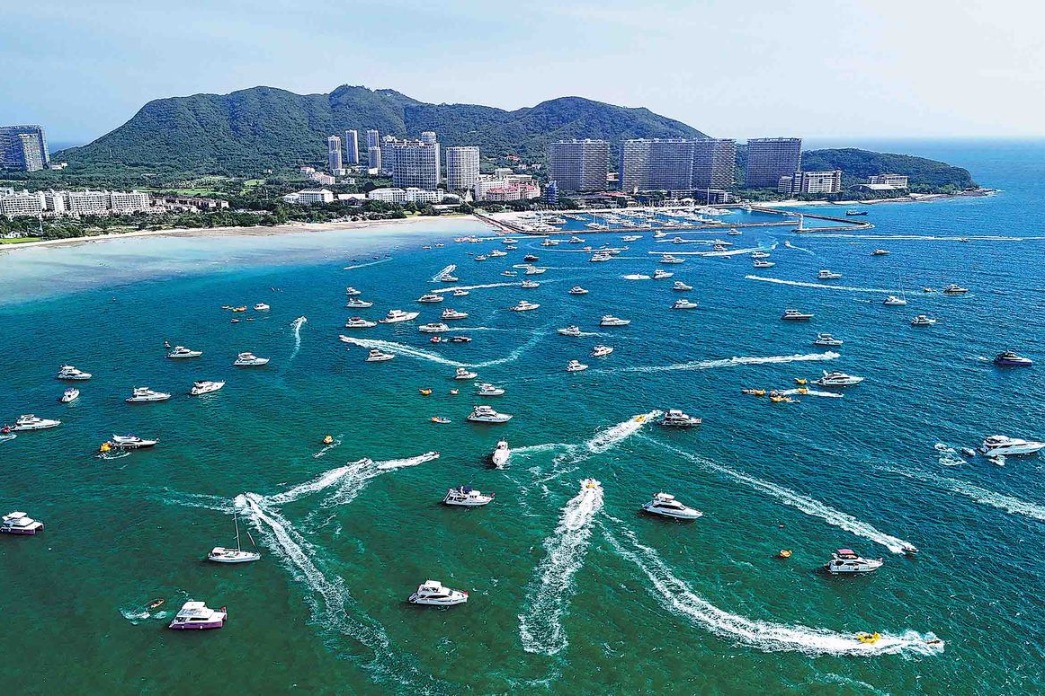European nations tighten quarantine measures
By JONATHAN POWELL in London | China Daily Global | Updated: 2021-02-03 09:26

Countries across Europe are moving toward closing their borders or restricting access to travelers in a bid to suppress the spread of the novel coronavirus and its mutant variants that threaten to disrupt vaccination drives.
The World Health Organization has long predicted that the winter months would test European governments' determination in the fight against the pandemic.
One of its spokespersons used the naval expression "all hands on deck" to describe the nations-wide effort that would be required to navigate the storm, and there can be no doubt that Europe is now traversing choppy waters.
COVID-19 infections have surged since Christmas, especially in the United Kingdom, where the disease has been claiming the lives of more than 1,200 people per day.
Europe's response to the changing situation varies from nation to nation, depending on the rates of infection, but most countries now require proof of a negative COVID-19 test upon arrival and some require a quarantine too.
Due to the discovery of a new variant first identified in Kent, England, many European countries have prohibited arrivals from the UK completely.
People traveling to England from so-called high-risk nations will soon have to quarantine in government-sanctioned hotels and at their own expense, rather than at home, so self-isolation rules can be more strictly enforced.
Travel to the UK is now banned from 33 countries on its "red list "associated with new coronavirus variants. These include countries in South America, nations in Southern Africa, Portugal and the United Arab Emirates.
The ban on flights from the UAE shuts down the world's busiest international airline route from Dubai to London.
Britain's Home Secretary Priti Patel said a holiday travel ban will also be tightened, with all travelers required to declare their reason for leaving the UK. Senior Cabinet minister Michael Gove added that some work trips would not be allowed and there needed to be "powerful business reasons" for travel.
Most European Union member states use a traffic light map from the European Centre for Disease Prevention and Control, or ECDC, as a guideline to high-risk countries.
The ECDC map shows there are no longer any "green zone" safe countries across the EU. In some countries anyone arriving from a "red zone "must go into self-isolation for a certain amount of days, between 7 and 14, but may be able to "test-out" earlier with a negative result.
This is the situation in Germany, France, and Italy. Spain currently remains open to tourists, with restrictions depending on where travelers are coming from.
But scientists warn that travel bans will not keep out mutant strains of the novel coronavirus and they can only "buy time".
According to leading scientist and UK government adviser Jeremy Farrar, nations are in "a race" against a virus that keeps mutating.
"In the future I think we will see variants that escape from the vaccines," he told BBC Radio 4's Today program in a recent interview.
"The thing to do at the moment is to vaccinate as many people as we can in the world to drive down the amount of transmission and prevent these new variants coming. That's in our national interests, it's in an equitable and ethical interest, and it's in the world's interests to do so," he said.
More support for aviation
The UK's aviation sector has said it "urgently" needs more government support if it is to survive another long period of travel restrictions.
Industry body Airlines UK noted, in a letter to government on Jan 26, that "the UK already has "some of the toughest border restrictions on international arrivals anywhere in the world".
The International Air Transport Association (IATA) stated that while it recognizes "the (UK) government must take the steps it considers necessary to protect public health", further restrictions "will plunge the aviation and travel industry deeper into crisis".
According to news site FlightGlobal, "the airline industry body posed a number of questions regarding the UK's hotel quarantine proposals, including around the scientific basis for the decision, the economic impact assessment, and the practicalities of introducing such measures".
The IATA stated: "If ministers cannot answer these key questions, it damages public confidence that there is a coherent strategy for suppressing COVID-19 and a roadmap in place for returning to normal life." A senior IATA official told the BBC last month that the world's airlines need another $70-$80 billion of government support to survive the crisis, on top of $170 billion already given.
However, Andrew Adonis, a former UK transport secretary, struck a more upbeat tone when speaking to the travel sector's Virtual ITT Conference Forum on Jan 28. He paraphrased Mark Twain's famous quote when he said: "Rumors of travel's death are greatly exaggerated."
He added: "Once the vaccine has been rolled out, behavior patterns will return, although the transitional pain will be acute."
























